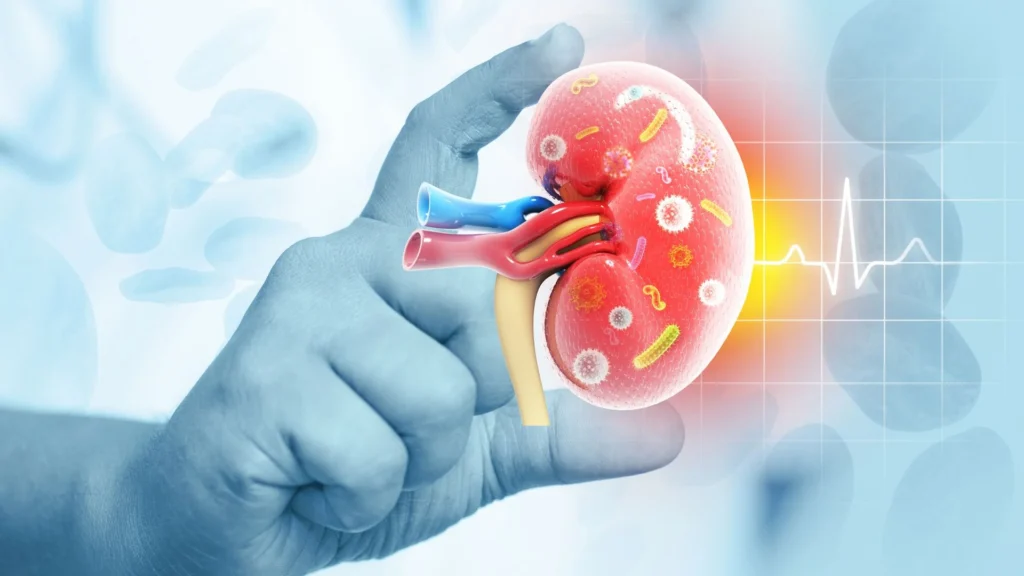1. Diabetes as a Leading Cause of CKD:
Diabetes, particularly Type 2, is the most common cause of chronic kidney disease. High blood sugar levels over time can damage the kidneys’ tiny blood vessels and filtering units (glomeruli), impairing their ability to filter waste and excess fluid from the blood effectively.
2. Stages of CKD in Diabetic Patients:
CKD progresses in stages, ranging from mild kidney function decline (Stage 1) to end-stage renal disease (ESRD or Stage 5). In diabetic patients, this progression can be faster if blood sugar levels and blood pressure are poorly managed.
3. Risk Factors Linking Diabetes to CKD:
- Poor glycemic control
- Hypertension (common in diabetics and a significant contributor to kidney damage)
- Obesity
- Long-standing diabetes
- Role of Dialysis in CKD:
When CKD progresses to ESRD, the kidneys fail to perform their essential functions, and dialysis becomes necessary. Dialysis artificially removes waste products, toxins, and excess fluid from the blood.
- Hemodialysis: A machine filters blood outside the body.
- Peritoneal Dialysis: The abdominal lining is used as a natural filter.
- Impact of Diabetes on Dialysis:
- Challenges: Diabetic patients on dialysis are at higher risk of complications such as infections, cardiovascular disease, and vascular access issues.
- Management: Strict blood sugar control and monitoring are critical during dialysis to prevent complications like low blood sugar and malnutrition.
- Preventive Measures:
- Control blood sugar levels and blood pressure.
- Maintain a healthy diet low in salt and protein.
- Regular monitoring of kidney function in diabetics.
Early diagnosis and effective management of diabetes can slow the progression of CKD and delay or prevent the need for dialysis.

